The next Access to Justice Week BC is February 7-11. BC’s Access to Justice Week is designed to “offer information and learning opportunities about access to justice in British Columbia.” Legal sector analyst, Jordan Furlong will give this year’s keynote event on February 9 on “Redefining Competencies for the 21st Century Lawyer”. For more information about events taking place at law schools across BC and online for Access to Justice Week BC, visit: http://www.a2jweekbc.ca/ or follow @a2jweekbc on Twitter for updat”es.
Month January 2022
BC First Nations Justice Council To Hold Virtual Grand Opening For Indigenous Justice Centres
On the heels of the recent announcement by federal Minister of Justice, David Lametti, and Attorney General for BC, David Eby regarding the signing of a tripartite memorandum of understanding to support the implementation of the BC First Nations Justice Strategy, and funding to support Indigenous Justice Centres in British Columbia, the BC First Nations Justice Council has announced a virtual grand opening to celebrate the launch of four new Indigenous Justice Centres.
The BC First Nations Justice Council, which seeks to support the well-being of future generations by upholding self-determination, reclaiming Indigenous legal traditions, and addressing systemic injustice invites the public to attend the grand opening on Wednesday, January 26 to learn about the new Indigenous Justice Centres. The event will take place at 11:00 am PST / 2:00 pm EST.
To register, please visit: https://www.eventbrite.ca/e/bc-first-nations-justice-council-tickets-208242969327.
Justice Canada Publishes Reports on Legal Problem Experiences in Canada’s Provinces
Justice Canada has published a series of reports examining experiences with serious legal problems in Canada’s provinces. The Canadian Legal Problems Survey (CLPS) joins other Canadian legal problems surveys (in 2004, 2006, 2008 and 2014) in providing important insights into Canadian’s experiences with serious legal problems and the impacts of these experiences.
Experiences of serious problems or disputes in the Canadian provinces, 2021 is published in English here: https://www150.statcan.gc.ca/n1/daily-quotidien/220118/dq220118c-eng.htm.
Expériences de conflits ou de problèmes graves dans les provinces canadiennes, 2021 est disponible en français ici : https://www150.statcan.gc.ca/n1/daily-quotidien/220118/dq220118c-fra.htm.
Justice Canada has also published a series of qualitative legal problems reports from studies carried out with different populations in different parts of Canada. Each report details experiences of these populations with serious legal problems. The collection of reports includes:
Serious Legal Problems faced by Lesbian, Gay, Bisexual, and Other Sexual-Minority People in Western Canada: A Qualitative Study: https://www.justice.gc.ca/eng/rp-pr/jr/lgbtq/index.html.
Les graves problèmes juridiques rencontrés par les personnes lesbiennes, gaies, bisexuelles et autres membres de minorités sexuelles dans l’Ouest canadien : Une étude qualitative : https://www.justice.gc.ca/fra/pr-rp/jr/lgbtq/index.html.
A Qualitative Look at Serious Legal Problems Faced by Immigrants in Greater Victoria and Vancouver, British Columbia: https://www.justice.gc.ca/eng/rp-pr/jr/ivvbc/index.html.
Un examen qualitatif des problèmes d’ordre juridique graves auxquels se heurtent les immigrants dans les agglomérations de Victoria et de Vancouver (Colombie-Britannique) : https://www.justice.gc.ca/fra/pr-rp/jr/ivvbc/index.html.
A Qualitative Look at Serious Legal Problems Facing Immigrants in London and Toronto, Ontario: https://www.justice.gc.ca/eng/rp-pr/jr/ilto/index.html.
Un examen qualitatif des problèmes d’ordre juridique graves auxquels font face les immigrants à London et à Toronto (Ontario) : https://www.justice.gc.ca/fra/pr-rp/jr/ilto/index.html.
Serious Problems Experienced by People with Disabilities Living in Atlantic Canada: https://www.justice.gc.ca/eng/rp-pr/jr/pwdac-phca/index.html.
Problèmes graves rencontrés par les personnes handicapées au Canada atlantique : https://www.justice.gc.ca/fra/pr-rp/jr/phca-pwdac/index.html.
A Qualitative Look at Serious Legal Problems for People with Disabilities in Central Canada: https://www.justice.gc.ca/eng/rp-pr/jr/pwdcc-phcc/index.html.
Un examen qualitatif des problèmes d’ordre juridique graves touchant les personnes handicapées dans le centre du Canada : https://www.justice.gc.ca/fra/pr-rp/jr/phcc-pwdcc/index.html.
Serious Problems Experienced by Diverse People with Disabilities: Western Canada: https://www.justice.gc.ca/eng/rp-pr/jr/pwdwc-phcw/index.html.
Problèmes graves rencontrés par diverses personnes en situation de handicap – Ouest du Canada : https://www.justice.gc.ca/fra/pr-rp/jr/phcw-pwdwc/index.html.
International Group Publishes Policy Paper on Access to Justice for Women and the Rule of Law
A new policy paper by The Elders outlines frameworks and tools for all nation states to respect and proposes measures for governments, civil society, and the legal community to adopt to ensure that “access to justice and the rule of law form the bedrock of the post-pandemic recovery.”
“Access to Justice for Women and the Rule of Law” examines the impacts that the ongoing global health crisis has had on access to justice for women, including as relates to increased risks of intimate partner violence and difficulties accessing support services. The paper takes turns discussing each of three main barriers women face in seeking access to justice: discriminatory laws, discrimination in the application of laws, and complex and inaccessible justice systems. Recommendations for a way forward include:
- A holistic, long-term, and collaborative approach to understanding women’s justice needs
- Repealing discriminatory laws and enacting legislation that better protects women
- Improving data collection and analysis to develop a more comprehensive understanding of the scale of the justice gap as it affects women
- Efforts by the legal community to increase the number of women in senior positions within the justice system
- Measures to ensure that services for women are accessible and empowering and reflect a people-centred approach to justice
To read “Access to Justice for Women and the Rule of Law”, visit: https://theelders.org/sites/default/files/newsarticaldocument/The-Elders-Access-to-Justice-for-Women-and-the-Rule-of-Law.pdf.
Project to Assess Unbundled Legal Services Publishes Phase 1 Report
The Family Law Unbundled Legal Services Research Project (ULSRP) is an initiative by the Access to Justice BC Unbundling Working Group, Family Justice Innovation Lab Society, and Standpoint Decisions Inc. which seeks to examine the effectiveness of family unbundled legal services. The project also aims to “facilitate access to justice by enhancing the working relationships between the existing community of [unbundled legal services] providers and BC citizens most in need of unbundled-type services.”
The project is being conducted in two phases, with the focus of Phase 1 to test and demonstrate the feasibility and benefits of a proposed model for ongoing feedback from unbundled legal services clients. Data collected from this project will help service providers, innovators and policy-makers to assess the effectiveness of unbundled family legal services and better understand the user/client experience. The final report from Phase 1 of the Family Law Unbundled Legal Services Research Project is available here: https://www.bcfamilyinnovationlab.ca/wp-content/uploads/2021/12/ULSRP-Phase-1-Report-2021-12-08-File-No-2020-LLR-3552-no-financials.pdf.





